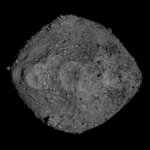January 28, 2018 – Five days ago Google and XPrize officials closed the private enterprise Lunar mission contest with its grand prize of $30 million US. in cash to the winner. It appears after eight years of effort by various teams, which as late as November, were still gearing up to launch to the Moon in 2018, this XPrize has died with a whimper.
Is there a win in all of this?
XPrize staff claim there is because the competition “sparked the conversation and changed expectations with regard to who can land on the Moon.”
That entrepreneurs and engineers operating in small teams could make this happen to begin the democratizing of space exploration and travel. For the five teams still actively pursuing the prize, some have indicated that they intend to continue and fulfill the dream of sending a spacecraft to the Moon, have it soft land, travel 500 meters across the surface, and transmit high-definition images and video back to Earth.
In the XPrize announcement, it states that a number of the five finalist teams had built flight-ready hardware and had contracted with launch providers. They just ran out of time based on Google’s agreed to sponsorship deadline which the software company had moved several times, from dates in 2015 and later, to the final agreed-to-date of March 31, 2018.
With Google no longer on board XPrize may seek another sponsor to restore the $30 million purse or continue the competition without a cash prize, promising to put its resources behind publicizing the teams that succeed.
So, in the end, what did the Google Lunar XPrize achieve?
- Teams raised over $300 million US to help them develop the technology needed to compete for the prize.
- Hundreds of jobs and a number of new commercial companies were created in many countries including Israel, Hungary, India, Malaysia, Japan, Germany, and the United States.
- Private space companies were able to convince government regulators to lower the bar for approving space missions which will bode well for any future entrepreneurial space ventures.
- Google did pay out $6 million US for entries that completed interim technology development milestones that will no doubt be used for future space flights.
- And XPrize garnered lots of publicity which some say, even if negative, is a good thing.
Private space enterprise requires commitment and deep pockets. Just ask Elon Musk, Jeff Bezos, Paul Allen, Richard Branson, and Robert Bigelow. These billionaires are achieving milestones towards commercial space enterprise, doing what seemed only possible through national space agencies and the largess of government-funded programs. Considering the money being put into these individual enterprises, billions of dollars, one can hardly equate these private space ventures with the democratizing of access to outer space. But they are achieving milestones thought only possible by government space agencies and succeeding at a fraction of the cost. We’re just not there yet in making outer space accessible to those in the under $100 million category. It will come in time.









